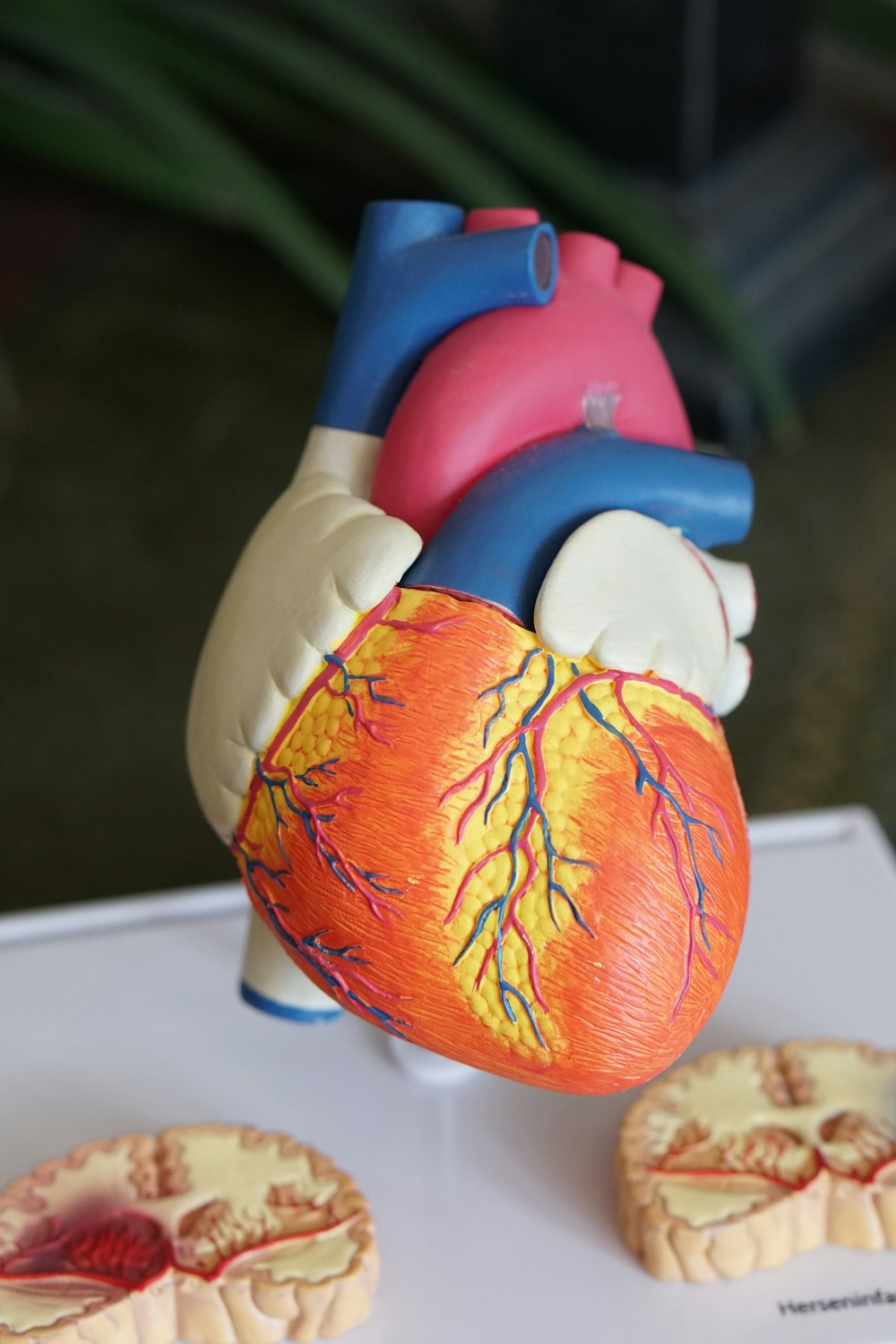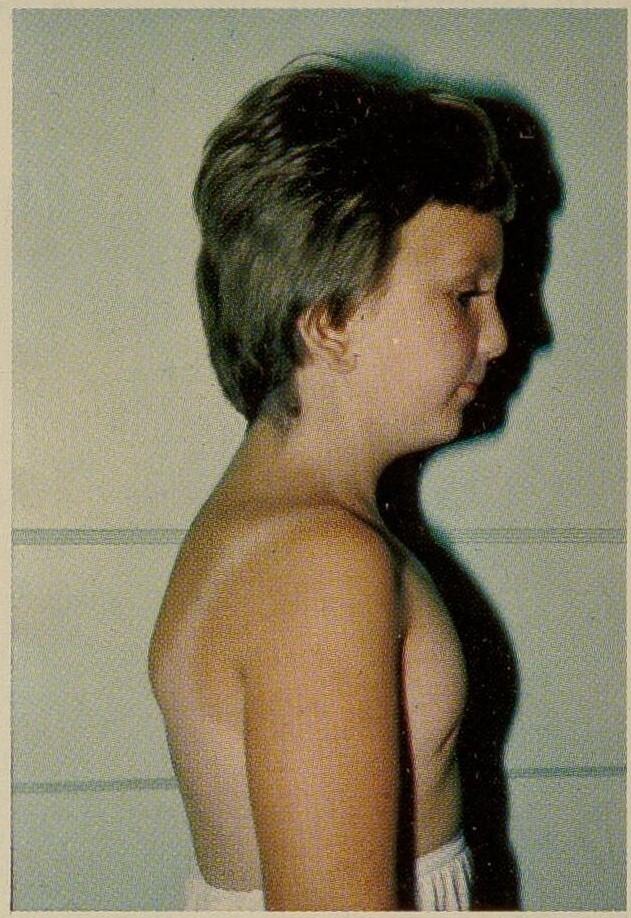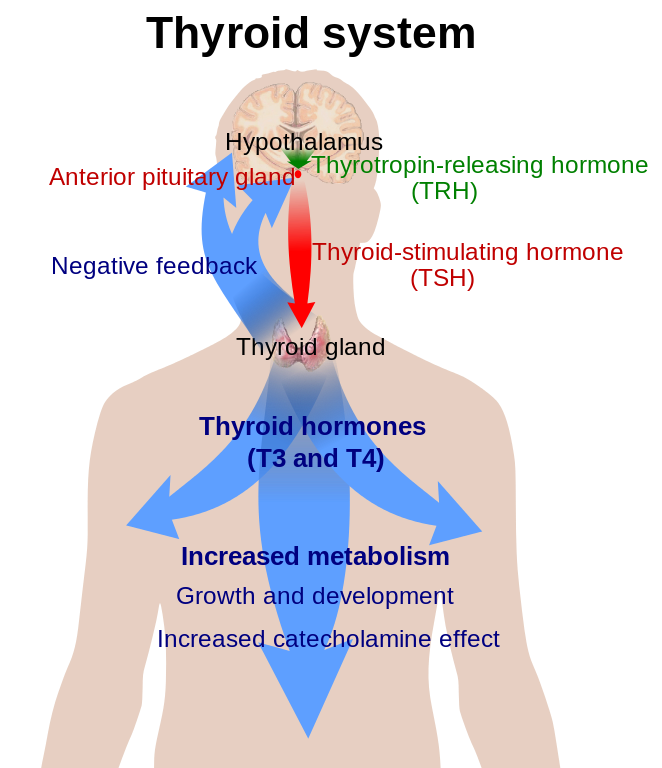15 Famous People Who Thrived with Turner Syndrome
*Originally published by Gloria N in June 2023 and Updated by Diana K in February 2024
There are many women out there with this disorder known as Turner Syndrome. The condition affects women, where you find a woman having only one sex chromosome instead of two. The disorder comes with many challenging conditions like medical issues and developmental problems.
In this article, we have compiled 15 famous people who thrived with Turner Syndrome and did not let the condition stand in their way to success. It is good to note many people are living with the disorder but still doing great things in life.
Here are the 15 famous people who thrived with Turner syndrome;
1. Dr. Catherine Ward Melver
Catherine is one of the celebrities that suffer from Turner Syndrome and grew up with it. She is a medical geneticist and has worked in the field for more than 16 years. Catherine is licensed by the OH State Medical License.
She was diagnosed with the disorder when she was only 8 years old, and due to the disease, she was unable to bare her own children. However, she has embraced parenthood by adopting a daughter.
Find the 10 Famous People with Histrionic Personality Disorder.
2. Linda Hunt
She is famously known as a Hollywood actress from America. She is among the known famous people who suffered from Turner Syndrome. She has starred in many notable films such as Dune in 1984, Pocahontas in 1995, Stranger Than Fiction in 2006, and Pocahontas II: Journey to a New World in 1998.
She has been awarded 13 honors such as the 1984 Academy Award for Best Supporting Actress and the 2012 Teen Choice Award among others.
3. Missy Marlowe
Missy Marlowe is among the famous people who have grown up with Turner Syndrome. Missy was a member of the United States squad that competed back in the Pan American Games in Indianapolis and participated in artistic gymnastics.
Despite the many accomplishments she had in her life, the most remarkable one was becoming World Champion Gymnast. She currently works as a spokeswoman for the Turner Syndrome Society.
4. Janette Cranky
Janette Cranky is a known celebrity who grew up with a disorder known as Turner Syndrome. The disorder prevented her from growing tall and she is below 4 feet.
Her role in The Krankies Klub in 1982, Tv’s Funniest Music Moments in 2008, and The Krankies Elektronik Komik in 1985 made her popular worldwide.
Here are the 35 Famous People And Celebrities Who Struggled With Eating Disorders.
5. Jessica Alba
Jessica Alba is a well-known American actress and businesswoman. Alba began appearing in film and television at the age of 13 years old. She rose to fame when she was 19 years old after starring in Dark Angel a television series from 2000 to 2002.
She was born on April 28, 1981, in Pomona, California, U.S., and is the daughter of Catherine Louisa (Mother), and Mark David Alba (Father). She is among the celebrities identified to have Turner Syndrome.
6. Mariska Hargitay Magdolna
Mariska Hargitay Magdolna is another celebrity who was diagnosed with Turner Syndrome. She was born in Los Angeles, California, on January 23, 1964. She came from a family of actors; her mother Jayne Mansfield was an actress while her father Mickey Hargitay was an actor and bodybuilder.
She is a famous American actress who has played several successful films. Her breakthrough came when she played in the drama series known as Law & Order: Special Victims Unit as Olivia Benson.
7. Natalie Gulbis
Natalie Gulbis was diagnosed with Turner Syndrome at the age of 12. She is a professional golfer from California, and the disorder did not stop her from pursuing her dream career.
Natalie has secured four professional wins and is one of the most successful people despite suffering from a disorder that comes with emotional challenges.
8. Sarah Chalke
Sarah Chalke was born on August 27, 1976, in Ottawa, Ontario, Canada. She is a Canadian actress and model. Her acting career began at a young age, she started appearing in musical theatre production at the age of 8.
She is among the famous people with Turner Syndrome disorder. The condition did not stop her from being successful, she is a popular actress known for her leading roles in television shows, video games, and movies.
9. Nicole Scherzinger
Nicole Scherzinger is an American actress, singer, television, and dancer. She was diagnosed with Turner Syndrome, but that did not limit her from pursuing her career, she is among the most successful singers, dancers, and actresses worldwide.
She has been featured in several films such as Love Don’t Cost a Thing in 2003, Sabrina the Teenage Witch in 2001, Men in Black 3 in 2012, and Dirty Dancing in 2017 among others.
Look at the 30 Famous People and Celebrities with Diabetes.
10. Saoirse Ronan
Saoirse Ronan is a well-known Irish actress. She gained fame after starring in The Grand Budapest Hotel and Lady Bird films. Ronan was determined to become a successful actress, and she received her first Academy Award nomination for Atonement at the age of 13. Later she won other two Academy Awards and three Golden Globe nominations.
She is said to be born with Turner Syndrome, however, despite living with the condition she is a successful actress.
11. Dominique Moceanu
Dominique Moceanu is one of the famous people who have Turner syndrome disorder. She was born on September 30, 1981, in Hollywood, California, U.S. Dominique is a retired American gymnast.
She was the first youngest gymnast to win the senior all-around title in 1995 at the U.S. National Championships at the age of 13 years.
12. Natasha Hamilton
Natasha Hamilton is a well-known English singer and stage actress who was diagnosed with Turner syndrome. She is a member of Atomic Kitten, an England girl group that was formed in 1998 by Orchestral Manoeuvres in the Dark (0MD). When she was 12 of age, Natasha began singing and performing in the Starlight Show Group.
Today, she is a successful actress and singer known globally for her many notable albums and films. Her condition did not stop her from working and pursuing her dreams. Natasha has been determined and hardworking all through.
13. Sabrina Bryan
She is a famous dancer, actress, and singer from the United States of America. Sabrina was diagnosed with Turner Syndrome at a young age. She is known as Reba Sabrina Hinojos, Sabrina Bryan is her professional name. Sabrina was a member of The Cheetah Girls, an American girl group that was formed back in 2003.
She was born in Yorba Linda, California, U.S., and she began her career as a dancer. She has well-trained dancing at the Hart Academy of Dance before joining acting. She has starred in many successful films throughout her acting career.
Read also the 10 Celebrities with Antisocial Personality Disorder.
14. Amaya Brecher
Amaya is a Television personality from the United States of America. She gained fame after featuring in America’s Next Top Model, a popular reality show. During her time in the show, Amaya shared about her being diagnosed with Turner Syndrome.
She was born in New Mexico, USA back on February 13, 1988. Amaya participated in the fourth-cycle competition of America’s Next Top Model, hosted by Tyra Banks.
15. Kacey Montoya
Kacey Montoya was born on June 24, 1981, in Orange County, California. She is a Television news reporter and anchor of America. She was diagnosed with Turner Syndrome and she shared her life story of living with the condition and inspired others living with similar conditions.
It is interesting to note that women suffering from Turner Syndrome are like any other and the condition does not limit them from pursuing their dreams. Despite the challenges, you should always fight to succeed.
Turner Syndrome Demystified: 15 Key Facts for Greater Understanding
1. Turner Syndrome is a Genetic Condition

, , via Wikimedia Commons
The primary distinguishing genetic feature of Turner Syndrome is a complete or partial absence of one of the two X chromosomes found in females, resulting in a 45,X chromosome configuration. Girls and women normally have two X chromosomes, but when one X chromosome goes missing during the formation of the embryo, a variety of physical and developmental abnormalities ensue.
The loss of the X chromosome interrupts the balanced genetic network required for proper growth, affecting multiple organ systems. Understanding this abnormal X chromosome anomaly is essential to appreciating the impacts of Turner Syndrome on the human body and development. Comprehending this genetic basis is the first step toward early detection and targeted intervention.
2. An Uncommon Yet Impactful Condition Affecting Thousands
While considered a relatively rare chromosomal disorder, the importance of Turner Syndrome to public health should not be underestimated, occurring in 1 out of every 2,000 to 2,500 live female births. This prevalence means thousands of girls are affected each year. The rarity of the condition restricts broader awareness in the medical community and general public compared to other more common genetic defects, but its impact is notable and life-altering for those affected. Therefore, proactive efforts toward timely diagnosis, screening, and support are critically needed for this vulnerable population.
3. Distinct Physical Features Identify Individuals with Turner Syndrome

TS Webbed Neck. , , via Wikimedia Commons
Prominent physical features in Turner Syndrome include short stature, underdeveloped sex characteristics, a broad and webbed neck, widely spaced and inverted nipples, low hairline, low-set ears, and swollen hands and feet. While not all individuals express all characteristics, recognizing this constellation of physical traits in females at a young age can aid in prompt diagnosis and timely intervention.
Since stature, puberty, and reproductive issues are involved, early detection and treatment in childhood and adolescence are pivotal for maximizing growth potential and managing associated health concerns. Turner Syndrome has a distinctly feminine body profile that, when noted, warrants sensitive yet urgent medical examination.
4. Growth Hormone Deficiency
One of the cardinal features of Turner Syndrome is severely short stature, typically falling significantly below familial height expectations and trending much shorter than one’s peers in adolescence. This deficiency stems from insufficient growth hormone secretion due to missing X chromosome genes impacting endocrine gland development and function.
The resulting dwarfism can be socially and psychologically difficult. However, synthetic biosynthetic growth hormones offer a highly effective intervention if initiated relatively early in childhood, ideally starting between the ages of 4-6 years old. If maintained through adolescence, hormone replacement therapy enables most girls with Turner Syndrome to reach an improved adult height and self-confidence.
5. Heart Defects are more Prevalent in Girls with Turner Syndrome

Photo by on
Up to half of all girls born with Turner Syndrome suffer from one or more congenital heart defects, subjecting them to lifelong cardiac vulnerabilities. Abnormalities include aortic valve anomalies, hypertension, and coarctation of the aorta. This predisposition toward heart problems necessitates diligent blood pressure monitoring, echocardiograms, and specialist cardiology care starting from a young age and continuing over the lifespan.
Catching cardiac abnormalities early and managing heart health proactively are imperative for minimizing risks and improving prognosis. Prioritizing cardiovascular care contributes significantly to the longevity and quality of life for those living with Turner Syndrome.
6. Women with Turner Syndrome Experience Reproductive Challenges

, , via Wikimedia Commons
Most girls with Turner Syndrome confront infertility in adulthood due to ovarian dysgenesis, or the incomplete development of ovaries. The dysfunctional ovaries exhibit follicle depletion and diminished estrogen production, resulting in primary ovarian insufficiency by the mid-teens in the vast majority of cases.
These profound reproductive issues, stemming from the genetic chromosomal defect, can lead to difficult psychosocial adjustments. However, advances in assisted reproductive technologies like egg donation and surrogacy now provide pathways to biological parenthood that previously seemed unattainable. Genetic counselling is recommended for informing family planning decisions.
7. Delayed Puberty for Girls

, Public domain, via Wikimedia Commons
The ovarian problems intrinsic to Turner Syndrome commonly delay the onset of natural puberty in affected girls. However, employing estrogen replacement therapy, ideally beginning between the ages of 11 to 12 years old, can induce the changes associated with puberty on a more typical timeline. This hormone treatment stimulates feminine physical changes like breast growth, widens the pelvis to enable childbirth, and fosters proper emotional maturation. Customizing and closely monitoring estrogen doses promotes healthy development. Specialists help families navigate this sensitive hormonal transition unique to girls with Turner Syndrome.
8. Individuals with Turner Syndrome may face Learning Disabilities
Many girls and women with Turner Syndrome exhibit specific cognitive challenges, particularly with visual-spatial tasks and mathematical concepts, which may impede academic performance. Social immaturity and difficulties reading social cues can also isolate them. Identifying and addressing these needs through neuropsychological testing, Individualized Education Programs, and specialized tutoring provides the scaffolding required for educational and social success. A compassionate, individualized approach focused on capitalizing strengths while shoring up deficiencies can help individuals with Turner Syndrome thrive in school and relationships.
9. Some Individuals may Develop Lymphedema

, , via Wikimedia Commons
A relatively common complication affecting girls and women with Turner Syndrome is lymphedema of the hands and feet, resulting in uncomfortable limb swelling. This builds up when problems with the lymphatic system impair drainage of fluid back into the bloodstream. If left unmanaged, the swelling and skin hardening can progressively worsen and cause disability.
Therefore, monitoring for early signs of swelling, avoiding constrictions from jewellery or garments, using compression stockings, and promptly treating infections can help control lymphedema. Physical therapy also aids drainage. Being aware of lymphedema risks allows proactive steps toward protection and treatment.
10. Kidney Abnormalities are more Common in Individuals with Turner Syndrome
Individuals with this syndrome demonstrate a higher prevalence of anatomical kidney problems, like a solitary kidney or horseshoe kidney fused at the bottom. These irregular formations may prone the kidneys to infections, cysts, and urinary issues if not monitored closely. Therefore, getting baseline kidney scans and ultrasounds followed by periodic reassessments helps screen for anomalies and monitors kidney health over the lifespan. Being attuned to possible renal variations and dysfunction facilitates early protective and preventative care in Turner Syndrome.
11. Thyroid Dysfunction is also Prevalent

, Public domain, via Wikimedia Commons
Hypothyroidism, an underactive thyroid, afflicts around a third of girls and women with Turner Syndrome, contributing to fatigue, weight gain, and sensitivity to cold if undetected. Annual TSH blood tests help monitor thyroid functioning, allowing prompt treatment with thyroid hormone supplements when deficiency is discovered. Keeping tabs on the master gland governing metabolism stability combats associated health issues. Endocrinology care maintains harmony for optimal wellness.
12. Hearing Loss can Occur in individuals with Turner Syndrome

, , via Wikimedia Commons
Progressive sensorineural hearing loss associated with inner ear abnormalities plagues a sizable portion of the Turner Syndrome population, placing communication skills in jeopardy. Therefore, baseline audiometric assessments followed by annual hearing tests allow early detection and intervention if needed. Many require hearing aids by adulthood. Protecting auditory health through vigilant screening preserves language development, social integration, and quality of life – highlighting why safeguarding hearing deserves paramount priority.
13. Individuals with Turner Syndrome can Lead full and Productive Lives
In the past, girls with Turner Syndrome did not live very long. Now, with good health care, they can live a normal length of life. They can go to school, have jobs, and do activities they enjoy. But they need to go to the doctor for regular check ups. Doctors need to check their heart, hearing, kidneys and other parts of the body. Finding and treating problems early is important. Healthy habits help too – eating nutritious food, exercising, and avoiding smoking. With the right care and support from family and doctors, girls with Turner Syndrome can lead full, happy and meaningful lives. Medical care helps them stay healthy for decades.
14. Mental Health Vulnerabilities also Come with the Conditions
In addition to physical and cognitive differences, many girls and women with Turner Syndrome grapple with emotional difficulties like chronic anxiety, poor self-image, social immaturity, and isolation. The synthesis of medical problems and learning struggles often undermine resiliency. Therefore, actively fostering mental health through psychological counselling, peer support groups, and confidence-building exercises helps counteract these vulnerabilities by promoting coping mechanisms and emotional intelligence as they navigate school, careers, relationships and life decisions. Prioritizing their emotional needs creates psychological buoyancy.
15. Ongoing Research Continues to Enhance Understanding of Turner Syndrome
Understanding the complexities of Turner Syndrome has expanded substantially over recent decades through biomedicine advancements, genomic analysis, growth hormone syntheses, ovum donation, and embryonic screening. Yet gaps still exist, warranting expanded scientific inquiry to further unravel the intricacies of X chromosome variations.
Emerging research on brain plasticity and nonverbal learning disabilities shows promise for bolstering cognitive potential. Meanwhile, induced pluripotent stem cell models may elucidate ovarian failure mysteries. Supporting scientific discovery across disciplines accelerates progress translating findings into improved patient education, genetic counseling, and highly customized interventions for brighter futures.
Turner Syndrome is a complex condition that necessitates a multidisciplinary approach for comprehensive care. Increased awareness, early diagnosis, and tailored interventions can significantly improve the quality of life for individuals with Turner Syndrome. As we continue to unravel the mysteries surrounding this syndrome, fostering understanding and support within communities remains crucial.
Planning a trip to Paris ? Get ready !
These are ���������Dz�’�����������-����������Բ� travel products that you may need for coming to Paris.
Bookstore
- The best travel book : Rick Steves – Paris 2023 –��
- Fodor’s Paris 2024 –��
Travel Gear
- Venture Pal Lightweight Backpack –��
- Samsonite Winfield 2 28″ Luggage –��
- Swig Savvy’s Stainless Steel Insulated Water Bottle –��
We sometimes read this list just to find out what new travel products people are buying.















